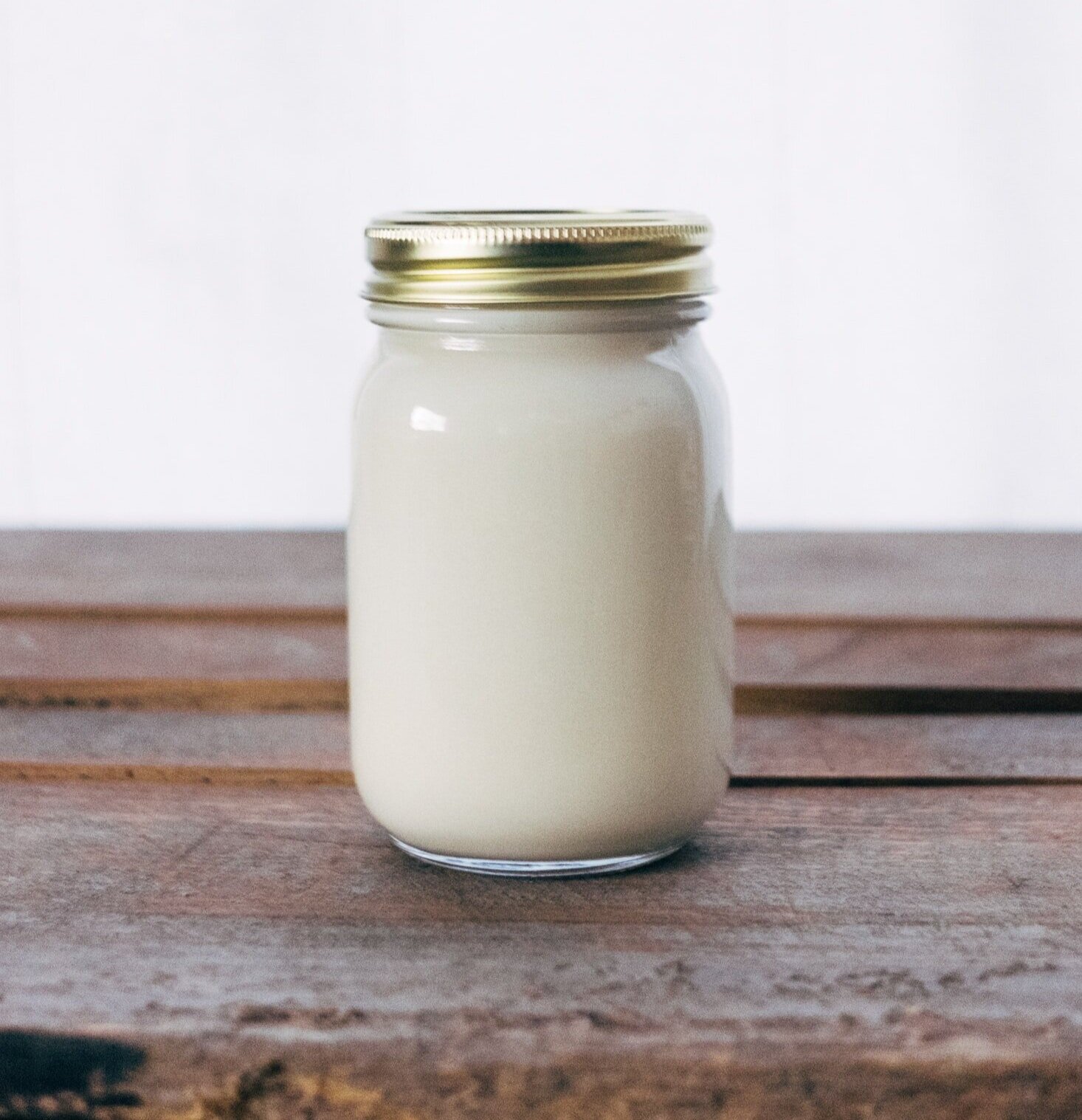Dietitian Approved Plant-based Milk Alternatives
There are so many plant-based milk alternatives out there...how do you know which one to choose? And, how should we be consuming them? Canada’s new Food Guide has officially switched out water for milk as our mealtime companion. However, the new Food Guide has also put an emphasis on choosing foods from plants more often - so how can we choose the best plant-based milk for us?
The Health Benefits of Plant-based Milk Alternatives
Plant-based milks are a great choice for plenty of reasons. More people are choosing dairy-free products for environment or ethics, because of allergy or lactose intolerance or simply because of taste! When choosing a plant-based milk, there are some key points to be aware of before making your final pick. Some of these beverages have no nutritional value and are packed with sugar, so keep these points in mind the next time you’re shopping.
Protein
Plant-based milks range from 0 - 8 grams of protein per cup, with soy milk and Ripple plant-based milk leading the pack at 7 grams and 8 grams of protein per cup. For a reference point, cow’s milk contains about 9 grams of protein per cup. Do you need to get a dose of protein from your plant-based milk? Not necessarily, as long as you are getting enough protein from your other sources. If you are choosing a plant-based milk with minimal protein and want to make it protein-rich drink, blend some hemp hearts into your cup!
Calcium
Plant-based milks do not naturally contain calcium. Despite whole, raw almonds being a good source of calcium (1 oz of almonds is about 75 mg of calcium), there are not enough almonds in your almond milk to make plant-based milks naturally rich in calcium. Make sure the plant-based milk you choose has been fortified with calcium and matches the amount found in a cup of cow’s milk: 30% to 35% of your daily needs.
Tip: Give these plant-based beverages a good shake before you pour them. This will help ensure that the calcium ends up in your cup and not in the bottom of the container.
Vitamin D
Vitamin D is another nutrient to watch for when choosing the right plant-based milk for you. This is because there are few food sources of vitamin D; with cow’s milk being one of them. Vitamin D is critical for bone health and it also plays a role in thyroid and immune functions. Cow’s milk has 45% of your daily value of vitamin D per cup - but it’s added, not a natural component of the milk. Fortified plant-based beverages have between 10% and 25%, so make sure you take your vitamin D supplement!
Sugar
Look out for added sugar and do not let that “original” flavour trick you! Flavoured or “original” flavoured plant-based milks can contain twice the amount of sugar as a cup of cow’s milk, which has about 13 grams of natural sugar from lactose. Except for oat milk, which naturally contains sugars, any sugars listed on the nutrition facts panel of a plant-based milk are likely added. Grab unsweetened plant-based milks whenever possible.
Simple ingredients
The shorter the ingredient list the better with minimal stabilizers and additives. Some stabilizers are necessary in plant-based milks but it is worth comparing the different brands and choosing the one with the smallest ingredient list. Making a DIY plant-based milk at home will probably give you the shortest ingredient list just make sure you get your calcium and vitamin D from a different food source.
Dietitian-approved plant-based milk alternatives
SoFresh Oat - Unsweetened Original - Unlike the hard cells of almonds or cashews, oats do a better job of staying in a creamy milk suspension. Each cup of oat milk is packed with Canadian-grown oats, creating a fibre-rich plant-based drink that is creamy and naturally sweet. And it’s great in coffee! Contains 4 grams of protein per cup.
Ripple Unsweetened Original - This pea protein-based milk is one of a kind - it’s vegan, and 100% dairy-, nut-, lactose- and gluten-free and contains 8 grams of protein per serving, 50% more calcium than cow’s milk, and more vitamin D. This is a great option for allergen-friendly homes.
Silk Organic Unsweetened Soy Beverage - Made with whole organic soybeans with 1 cup giving us 8 grams of protein, which is the same as cow’s milk, and low sugar.
Natur-a Soy Beverage (Unsweetened) - Canadian owned, Natur-a is a delicious soy beverage that has zero stabilizers. Soy milk is a great option for making creamy sauces and soups as it has a body more consistent with milk.
Califia Farms Unsweetened Almond Milk - Talk about sustainability! This innovative company, based out of California, has the goal to transition to 100% renewable power by 2020. They also use cool technology to lower their carbon footprint throughout their energy-efficient distribution center! It’s also maybe the tastiest almond milk we’ve tried. Low in protein and carbohydrates, almond milk’s light texture is great for adding calcium to smoothies where you don’t want to thicken the blend up much.
Milkadamia Macadamia Milk - Yes...they make milk out of macadamias now and it is really, really good. Low in protein and carbohydrate, but rich in healthy fats, it’s a fairly light textured milk that works in smoothies and by the glass.
Earth’s Own Cashew SoFresh Unsweetened Original - Cashew milk manages to taste buttery and creamy while being very light in texture. Great for making lighter sauces and soups, in addition to smoothies. Low in carbohydrates and protein.
Manitoba Harvest Hemp Bliss Unsweetened - Looking for a dose of omega-3s with your milk? Each serving (1 cup) of Hemp Bliss contains 4 grams of omega-3 and omega-6 fatty acids and 2 grams of protein. A great smoothie addition.
Califia Farms Go Coconuts Coconutmilk - One of the few fortified calcium coconut milks; low in protein and carbohydrates with 4 grams of fat per cup. A great light, neutral tasting option.
Good Karma Unsweetened Flaxmilk + Protein - I’ve saved perhaps the most surprising milk for last...Good Karma takes flax milk and adds pea protein, as does Ripple, to create a milk that has 8g of protein per cup and 1200mg of omega 3 fatty acids. It’s really delicious, and it’s totally allergen free. Not yet available in Canada, you’ll have to shop stateside for this one!
Whew! Amazingly enough, there are even more milk choices out there than the ones I’ve listed...but these are definitely the best in our eyes. Which is your favourite?
If you enjoyed this post please click like, share it with family & friends or sign up to our newsletter to receive news and updates from Food Yourself.
Article written for Desiree Nielsen


